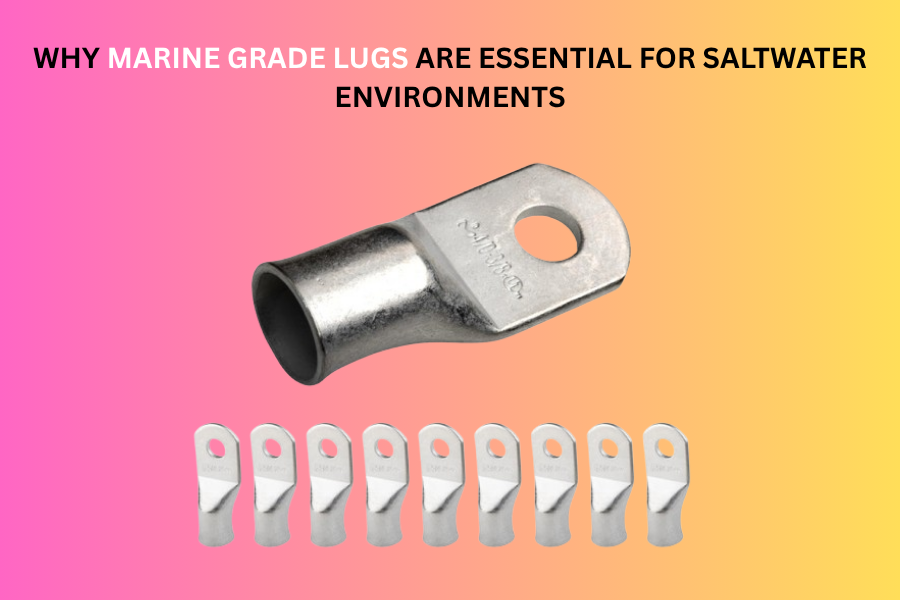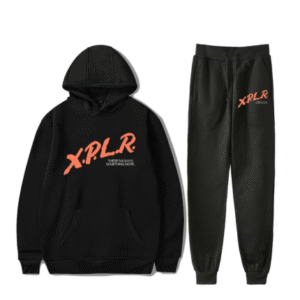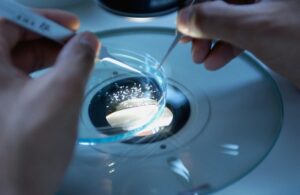
If you’ve ever worked on a boat’s electrical system, that wiring in a marine environment isn’t like wiring in a car or RV. Saltwater, humidity, and nonstop vibration offer a set of challenges that can corrode or loosen electrical connections in short order if they are not properly protected. That’s why marine grade lugs that are made of tinned copper are the standard for wiring in saltwater environments.
Let’s dive into why they’re so important, what sets them apart, and how choosing the right lugs can make all the difference in reliability and safety.
The Harsh Reality Of Saltwater Environments
Saltwater is notoriously destructive when it comes to metals. Unlike freshwater, it accelerates oxidation and corrosion, particularly on exposed copper. For marine electrical systems, that means bare copper lugs are prone to:
- Rapid corrosion, weakens conductivity.
- Increased resistance, leading to voltage drops.
- Overheating happens as the current has difficulty passing through compromised joints.
- Sometimes you will experience premature failure right in the middle of performing critical operations like starting an engine or running navigation equipment.
There’s simply no room for this kind of risk with boats, yachts, and marine equipment. A failed connection on a boat or yacht at an inopportune time could be unsafe, not just troublesome.
What Makes Marine Grade Lugs Different?
The key advantage of marine grade lugs lies in their construction. Unlike bare copper lugs, they’re made from tinned copper, which offers superior resistance to saltwater corrosion.
Here’s why they work so well:
- Tinned coating: The relatively thin layer of tin placed on the copper protects it from salt, moisture and oxidation without degrading conductivity.
- High conductivity: Because the base metal is still copper, marine lugs demonstrate great electrical conductivity.
- Durability under vibration: In a constantly moving marine environment, tinned copper lugs stand up to mechanical stress and corrosion.
Longer service life: With improved protection, these lugs have a much longer life cycle than regular non-tinned copper lugs and this reduces maintenance and replacement costs.
Proper Installation Matters
Even the best tinned copper lug won’t perform well if it’s not installed correctly. To ensure lasting reliability in saltwater environments:
- Crimp the correct way: Use a professional crimping tool; it permits you to uniformly crimp both sides of the lug with consistent pressure. Weak crimps create gaps where moisture can seep in.
- Seal with adhesive-lined heat shrink: Once the connection has been crimped, cover the lug with marine grade heat shrink tubing. This provides another layer of moisture protection and strain relief.
- Support the cables: Prevent unnecessary movement by securing cables with clamps, reducing stress on the lug joint.
Installation is as much about preventing future problems as it is about creating an immediate connection.
Common Marine Applications
Marine-grade lugs are used in nearly every part of a boat’s electrical system. Some common applications include:
- Engine starting circuits: Where dependable current flow is essential for reliable ignition.
- House batteries and inverters: To power lighting and appliances, and entertainment systems.
- Navigation and safety equipment: Where radios, GPS units, and safety supplies also require a continuous supply of power.
- Bilge pumps: A failure here due to corroded lugs can quickly escalate into a dangerous situation.
In short, any critical system on a boat that depends on electricity should use marine grade lugs.
Cost vs. Long-Term Value
While it’s a fact that tinned copper lugs are somewhat higher priced than standard bare copper lugs, but considering the cost of corrosion-related failures, lost productivity due to downtime, or being compelled to make emergency repairs, it pays for itself in the long run.
Consider it this way:
- Changing out a corroded lug and cable in mid-season is not only expensive, but it is also time-consuming when you want to be having all the fun reminiscing about your time on the water.
- Corrosion-related failures can degrade multiple components, including burned connections and possibly damaged electronics.
- With tinned copper connections, you can feel confident that the integrity of your connections will continue from season to season.
The initial cost is nothing compared to the long-term peace of mind you receive.
Final Thoughts
Saltwater environments are one of the most difficult conditions for electrical systems. Without adequate protection, connections can deteriorate very quickly, and that can lead to more serious problems on board. That’s why marine grade lugs, made from quality tinned copper, are necessary for anyone working in marine wiring, not optional.
Aside from preventing corrosion, providing maximum conductivity, and minimising long-term maintenance they can keep your boat’s electrical systems safe and reliable.
For durable, high-performance options, check out Selterm’s range of tinned copper lugs. Built to withstand the harshest conditions, they’re designed to keep your marine electrical connections secure season after season.




